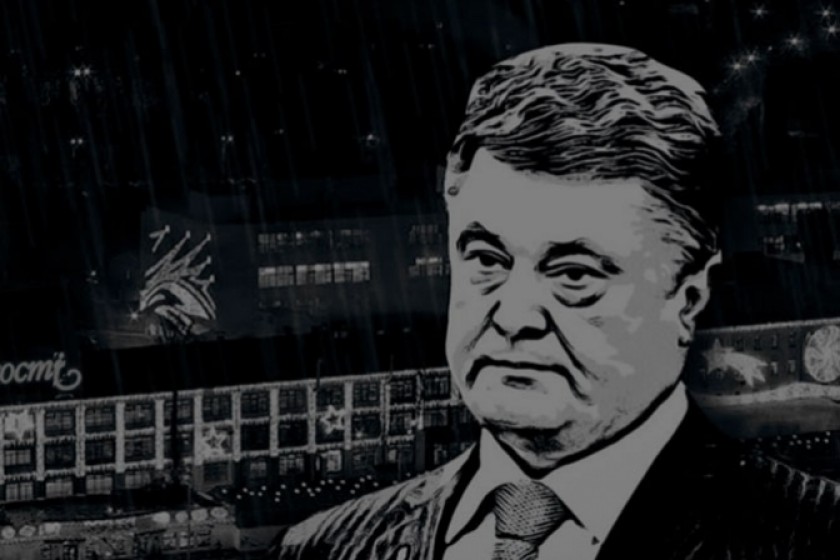
Ukraine: The President's Offshore Tax Plan
When Ukrainian President Petro Poroshenko ran for the top office in 2014, he promised voters he would sell Roshen, Ukraine’s largest candy business, so he could devote his full attention to running the country.
“If I get elected, I will wipe the slate clean and sell the Roshen concern. As President of Ukraine I plan and commit to focus exclusively on welfare of the nation,” Poroshenko told the German newspaper Bild less than two months before the election.
Instead, actions by his financial advisers and Poroshenko himself, who is worth an estimated US$ 858 million, make it appear that the candy magnate was more concerned about his own welfare than his country’s – going so far as to arguably violate the law twice, misrepresent information and deprive his country of badly needed tax dollars during a time of war.
Poroshenko did this by setting up an offshore holding company to move his business to the British Virgin Islands (BVI), a notorious offshore jurisdiction often used to hide ownership and evade taxes.
His financial advisers say it was done through BVI to make Roshen more attractive to potential international buyers, but it also means Poroshenko may save millions of dollars in Ukrainian taxes.
In one of several ironic twists in this story, the news about the president’s offshore comes as the Ukrainian government is actively fighting the use of offshores, which one organization says are costing Ukraine US$ 11.6 billion a year in lost revenues.
Details about the Roshen deal can be found in the Panama Papers, documents obtained from a Panama-based offshore services provider called Mossack Fonseca. The documents were received by the German newspaper Süddeutsche Zeitung and shared by the International Consortium of Investigative Journalists (ICIJ) with the Organized Crime and Corruption Reporting Project (OCCRP).
And in a more painful irony, the Panama Papers reveal that Poroshenko was apparently scrambling to protect his substantial financial assets in the BVI at a time when the conflict between Russia and Ukraine had reached its fiercest.
The Law
Poroshenko’s action might be illegal on two counts: he started a new company while president and he did not report the company on his disclosure statements.
According to documents from Mossack Fonseca, on Aug. 4, 2014, George Ioannou, then a senior associate of the law firm Dr. K. Chrysostomides & Co LLC, sent an email to the Mossack Fonseca’s incorporation department asking to register a new company for “a person involved in politics.”
“The company will be the holding company for his business … and will have nothing to do with his political activities,” Ioannou wrote, inquiring whether the registration agent would accept the job.
Seventeen days later, a new company with Ukrainian origins was submitted to the local registry of the British Virgin Islands.
Called Prime Asset Partners Ltd., a name similar to that of Poroshenko’s Ukrainian holding company, it was located in the Akara Building in Tortola, an address used by thousands of offshore companies from around the world. The sole shareholder of the company was Poroshenko with an address in Kyiv. A copy of his passport confirmed that the beneficial owner was indeed the Ukrainian president.
Mossack Fonseca records specify that Prime Asset Partners would serve as the holding company for the Ukrainian and Cyprus companies of Roshen confectionary corporation, with “proceeds from the business trade” of the corporation being its source of funds.
Oleksii Khmara, executive director of Transparency International Ukraine, told OCCRP that this is a big problem, calling it a conflict of interest and apparent violation of both the constitution, which bans the president from business activities, and the corruption laws, which ban all public officials from conducting private business.
“If a new business is created (after the election) and a public official is listed as the beneficiary, that means he’s actively engaged in business,” says Khmara. “This is a violation of the law, no matter what the conditions (under which it’s registered) or the jurisdiction used.”
The president also failed to report the newly registered BVI company and additional companies in his 2014 asset disclosure statements, a second possible violation of the law. The information is also missing on the 2015 asset forms. The Kyiv-based financial service group ICU (the president’s financial advisers) disclosed there were two more companies: one in Cyprus called CEE Confectionery Investments Ltd., registered in September 2014; and a second, registered in the Netherlands in December 2014, called Roshen Europe B.V. The BVI holding company holds the Cyprus company which in turn holds the Dutch company.
 Videos
Videos Photos
Photos




Write a comment